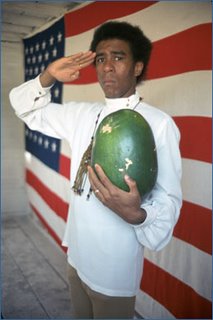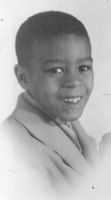The Evolution of The "Promotion Man"
 Sheet music salesmen and Song Pluggers were often forced to sing or play the compositions they promoted in an effort to pursuade the songs performance.
Sheet music salesmen and Song Pluggers were often forced to sing or play the compositions they promoted in an effort to pursuade the songs performance.The legacy of music promotion men actually began during the Vaudeville era. During that time, music publishers would hire "Song Pluggers" to solicit sheet music to be performed by various stage acts during their live stage shows. These promotion specialists would encourage their songs to be performed which would pay residual rights back to the song publisher and composers. Music publishers of Tin Pan Alley were anxious to promote their copyrights by beating a steady path to the performers. This business practice of providing both solicited and unsolicited performance material to the renderer became the acceptable procedure for advancement. At this undeveloped stage, songs were considered to be like raw diamonds waiting to be cut and polished. Hate to tell you this but the chicken did come before the egg. Yet Song Pluggers were there from the start and went on to become exclusively associated with the music publishing firms whereas their sole responsibility would be to broaden the career frontier of the composer.
But where do songs come from in the first place? Let's go back and trace the roots of the egg... er, I mean the song. Looking back we notice Americans longtime love for music that derived from Europeans who transposed their tradition with the Anglo-Saxons migrating from the old country. Once upon American soil, music searched for a refined definition to identity with the new world. It went through many phases which can be associated with today's Rock Music such as tone clustering, ragtime, and be-bop. During the 20th Century the advancement of many songs can be traced back to the Southern plantations whose field hands sang their songs while harvesting crops. Others were generated in the gospel vain stemming from the hymns of church congregations. With the advent of radio developing in the 1920's, the programming of live music and phonograph records over the airwaves provided increased varieties of music becoming available to the public. Previously unheard forms of music were now broadcast into the living rooms of America resulting in an exciting new frontier. These events produced the social and economic development of a sub-section of ethnic music which stimulated regional sales within the urban pockets of the larger cities. Notably within this category was various forms of Black Music such as Jazz, Gospel and Blues Music. With segregation still being present in the 20th Century, a blossoming music industry unfamiliar with these newcomers categorized this music as 'Race Records.' Record executives soon began noticing these records gaining consistent sales over their popular music counterparts and began to reexamine their priorities by anxiously beating a path to the radio stations with their salesmen. This noble practice of radio solicitation was conducted by what was briefly called a 'Front Man' and later renamed to what is presently known as the 'Promotion Man.' Whereas the later day promotion man only aligned his marketing efforts to the actual product of the phonograph record itself. Although not fully developed at mid-century, this media lobbying task of promoting records could generate moderate to large sums of revenue benefiting the record company, the recording artist, the music publisher and song's composer. In the early stages however these promotion men were in short supply and it was not uncommon for the record producer to adorn himself with two hats thus becoming the record promoter also. In geographical areas that music manufactures were located such as New York, Chicago and Los Angeles, promotion men began increasing in small numbers. However, by the mid-70's most major record companies had promotion field staffs located throughout the U.S.
The next posting will be the second part of this series titled: The Evolution of a Hit Song. (and how it got there)




prauls%20001.jpg)